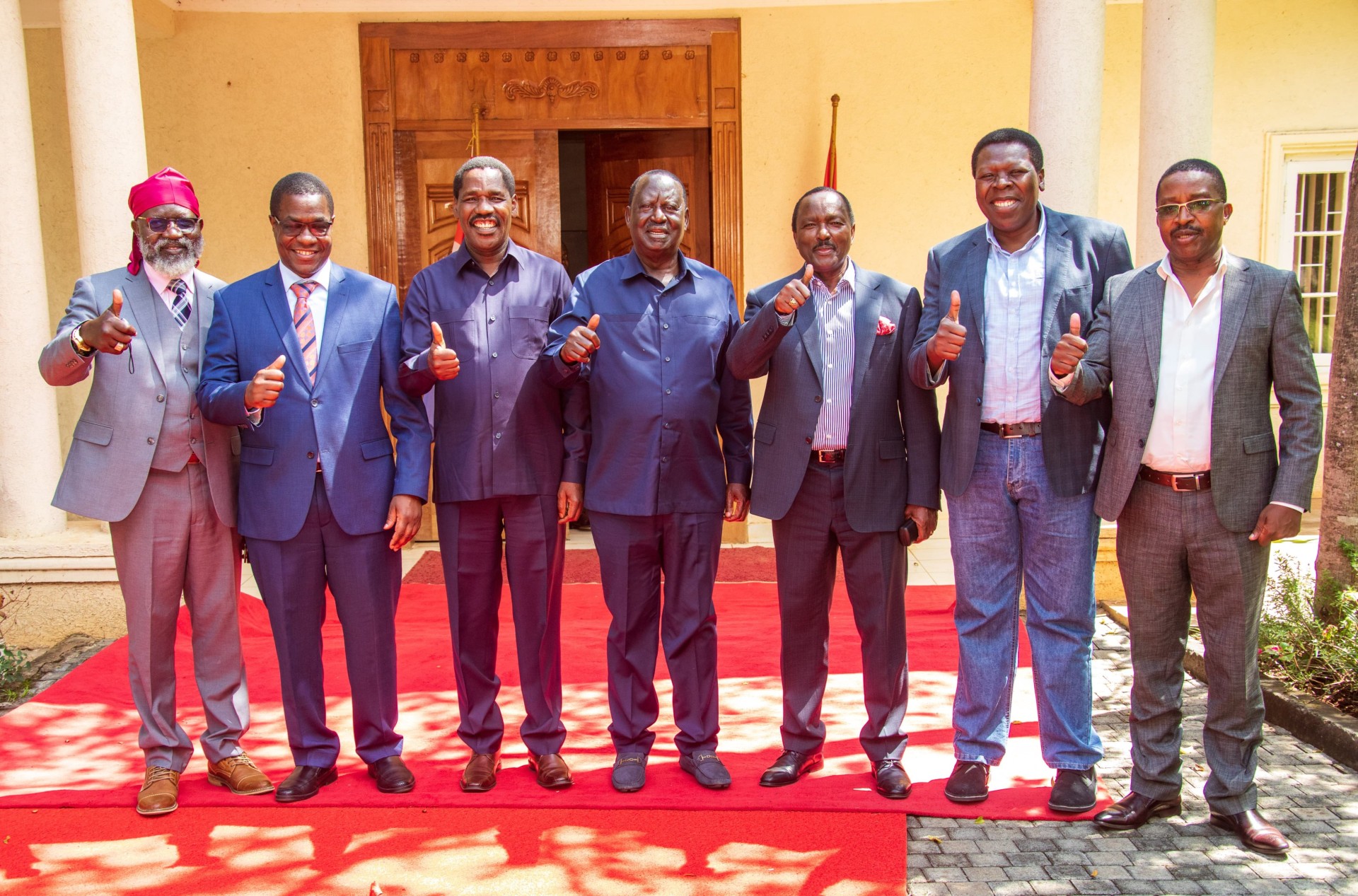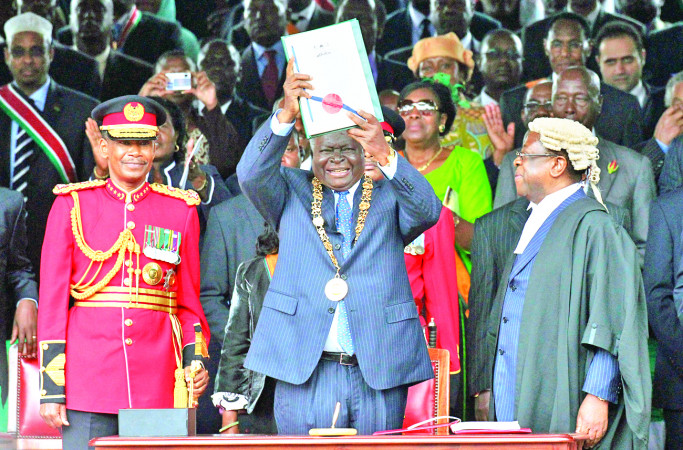Katiba @14: Azimio lists 9 challenges emerging from implementation of 2010 constitution

Opposition outfit Azimio la Umoja-One Kenya alliance has listed emerging challenges around the implementation of the 2010 constitution.
Reflecting on the past 14 years, after the current constitution was promulgated, Azimio says it celebrates achievements under a set of laws. However, it has listed a number of challenges that the country has faced despite the bright future the constitution brought upon the country.
The opposition has cited the implementation gap, especially on devolution, as one of the main challenges the 2010 Constitution has faced.
“While the Constitution decentralised power to county governments, there have been challenges in the equitable distribution of resources, delayed disbursement of resources to the devolved units, capacity building at the county level, and conflicts between national and county governments.
“Interference with devolved functions: Since the adoption of the devolved system of government with health as one of the major devolved sectors, the national government has continued to interfere. For example, the recent recruitment of community health workers by the National Government in the County Governments,” Azimio, in a statement dated Tuesday, August 27, 2024, said.
On legislation, Azimio said, “Certain laws required by the Constitution have been delayed, affecting the realization of specific rights and functions. Completion of the full transfer of functions together with the commensurate resources is yet to be achieved 14 years later.”
Judicial indepedence and human rights issues are also among the challenges facing the constitution, according to the opposition alliance.
“Judiciary independence and Accountability Executive Interference: There have been concerns about attempts by the executive branch to undermine the independence of the judiciary, including budgetary constraints and public criticism of the decisions from our courts.
“Judicial accountability: While the judiciary is independent, there have been calls for more robust mechanisms to ensure accountability and integrity within the judiciary itself.
“Security vs freedoms: Balancing national security and individual freedoms has been contentious, with cases where anti-terrorism laws and measures have been criticized for infringing on civil liberties,” it added.

Rights
Recently, the police and the public clashed during the Gen Z-led demonstrations, and the former came under intense scrutiny in how it dealt with the protests. Azimio, again, criticised the security agencies.
“We have witnessed police abductions and illegal detentions against the express provisions of the Constitution.
“Criminalisation of Constitutional Rights and Freedoms: In the past, there have been attempts to criminalize the people’s right to assemble, demonstrate, picket, and petition authorities as provided for in Article 37 of the Constitution of Kenya, 2010. For example, the police brutality witnessed during the recent protests against the Finance Bill, 2024, and the attempt to introduce a punitive anti-demonstration Bill by the Mbeere Member of Parliament,” it added.

Azimio also picked out the issue of inequality and discrimination, saying; “While all Kenyans have a right to full and equal treatment and equal opportunities in political, economic, cultural, and social spheres as envisioned in Article 27 of the Constitution of Kenya, 2010, we have recently witnessed discriminative education policies in the name of the higher education funding model that have since disenfranchised the majority of the young people in the institutions of higher learning.”
Under the previous and current constitutions, the subject of electoral reforms was intense, and Azimio has also picked it out.
“Electoral reforms: The electoral process remains fraught with challenges, including allegations of voter fraud, election violence, and the need for more transparent and credible election management. Fourteen years later, in every election in Kenya, we still witness violations of the general principles of the electoral system as
“Gender representation: The two-thirds gender rule, which mandates that no more than two-thirds of elective or appointive bodies be of the same gender, has not been fully implemented, particularly in Parliament. This remains a historical challenge, particularly affecting women of Kenya in elective and appointive positions,” it said.
Corruption
Kenya Kwanza’s critics have always said the current government is marred with corruption issues, and the opposition says it is a challenge in the country indeed.
“Despite strong provisions against corruption, the enforcement of these laws remains weak. High-profile corruption cases often lead to public skepticism about the effectiveness of the legal framework. Corruption and mismanagement of public resources remain a bad culture in our system of governance,” the statement said.
On public finance and public participation, Azimio said, “Mismanagement and embezzlement of public funds remain significant issues, with devolution sometimes exacerbating these problems at the county level.
“While the Constitution promotes public participation in governance, in practice, many citizens feel excluded from meaningful involvement in decision-making processes. Recently, the Court of Appeal ruled that the Finance Act, 2023, is unconstitutional due to a flawed public participation process. Additionally, the Finance
“Act 2024 was rejected by the public due to a lack of meaningful public participation in its enactment.”
Amendment Process
“Calls for Constitutional Amendments: Various groups have proposed amendments to address perceived flaws in the Constitution. However, the process is often contentious, raising concerns about the potential erosion of the gains made by the 2010 Constitution. At the same time, there has been a desire to amend what is not working for the people.”
On land reforms, the statement argued that land remains a sensitive issue in Kenya, with challenges in implementing land reforms as outlined in the Constitution, including historical injustices and equitable land distribution.
On security sector reforms, it said the Constitution envisaged comprehensive reforms in the security sector, particularly functioning police service, but progress has been slow, leading to continued issues of police brutality and inefficiency. We remain with a police service on paper but a police force in all its actions.
“These are reminders that our Constitution is a living document, one that requires our constant vigilance, commitment, and respect,” it said.

















